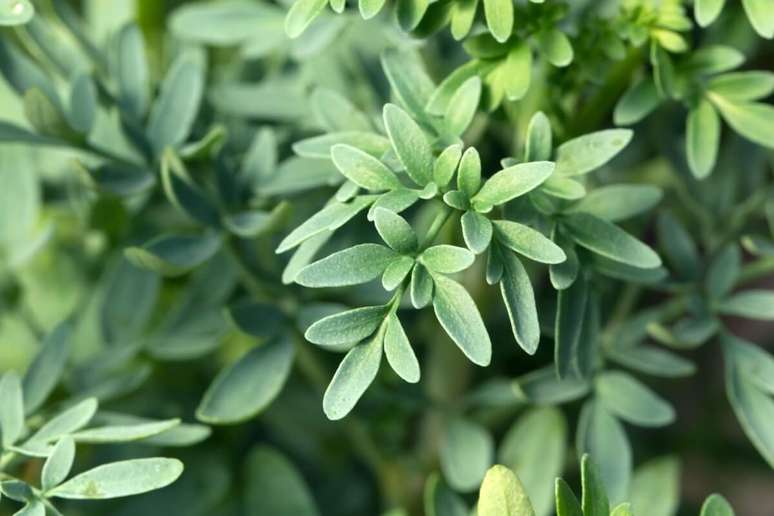Homeopathic pharmacist Jamar Tejada explains what asthma is, how it affects the human body, and provides advice on supplements to help treat the respiratory disease
Did you know that asthma is one of the most common respiratory diseases among Brazilians? It is estimated that 23.2% of our country’s population lives with the disease, representing the third or fourth cause of hospitalizations, depending on the age group analyzed.
Asthma is a non-contagious disease, but children of asthmatic people are more likely to develop it at any stage of life: even if there is no cure yet, it can be controlled and that’s what I want to talk to you about.
When we breathe, the air follows the following path: first it passes through our nostrils or mouth, descends through the pharynx, the larynx, passing through the trachea and reaching the lungs – where gas exchange takes place, i.e. the exchange of air exhaled carbon dioxide through inspired oxygen into the pulmonary alveoli. You may remember this from biology class.
The problem is that the lungs of asthmatic individuals develop inflammation that leads to swelling of the lining of the airways. In this case, the surrounding smooth muscles contract and the mucus blocks much of the air passage, causing a lack of air.
The diagnosis of asthma is made by the doctor based on the symptoms reported by the patient and the results of tests, such as spirometry, a test that measures the amount of air a person is able to inhale or exhale each time he or she breathes, which is the amount of air an individual is able to move in and out of the lungs and the speed at which it does so.
Asthma symptoms
The way asthma manifests itself can vary from person to person. The most common symptoms are shortness or wheezing and cough, which may worsen, especially at night or during physical activity. Other symptoms include shortness of breath, difficulty maintaining speech rhythm, tightness or pain in the chest, fatigue, frequent infections, sleep disturbances, and even anxiety or panic attacks.
The exact causes of asthma are not yet clear, but some factors have already been identified, such as the genetic profile, history of serious viral infections during childhood and also inadequate modulation of the immune system due to lack of exposure to microorganisms – called asthma theory, hygiene – or even environmental factors, such as allergens or intense emotions, among others.
Possible causes of asthma
- Climate changes;
- Respiratory infections, such as flu, colds or chronic sinusitis;
- Allergies to dust mites, molds, pollen, plants, animal hair, saliva or feces, cockroach body parts;
- Food allergies, such as shrimp, nuts, beer, wine, or preservatives such as sulfites;
- Smoking or being in environments full of smoke or dust;
- Practice of very intense physical activity;
- Stress or strong emotions;
- Gastroesophageal reflux disease.
- Use of nonsteroidal anti-inflammatory drugs, such as acetylsalicylic acid, ibuprofen, or naproxen.
Asthma treatments
Because there is still no cure for asthma, some treatments improve symptoms and reduce attacks, allowing for two-stage control of the disease. In the maintenance phase, anti-inflammatory drugs are generally used to reduce inflammation of the bronchi, the most used of which are inhaled corticosteroids, but there are other therapeutic options that can be combined. Among these are bronchodilators (such as salbutamol and ipratropium) which are used when crises occur in the second phase, called rescue, for rapid relief, which must be followed according to medical advice.
Supplements can also help
Omega 3s reduce the production of inflammatory mediators in asthma, and magnesium helps relax smooth muscles, as well as enhances the activity of bronchodilator drugs (beta-adrenergic agonists). Vitamin D3 also has immunomodulatory and anti-inflammatory effects.
There is also phytotherapeutic integration, such as taking the dry extract of a pine native to the French coast, known as Pinus pinaster, rich in flavonoids, which helps manage symptoms and reduce crises, thanks to its anti-inflammatory effects. It has already been shown to be able to reduce the production of inflammatory mediators, through the inhibition of enzymes that activate inflammation, such as cyclooxygenase (COX) and lipoxygenase (LOX) and the NF-κB pathway.
Also highly recommended is the well-known ginger, rich in gingerols and shogaols, as its active ingredients help to relax the smooth muscles of the bronchi and lungs through the activation of β2-adrenergic receptors, as well as having anti-inflammatory effects. Therefore, evidence indicates that ginger extract may help in the prevention and treatment of asthma attacks.
And there are also the more popular plants such as garlic (Allium sativum L.), Mexican oregano (Lippia graveolens) and chamomile (Matricaria chamomilla), which are widely used species with reports of effectiveness, including garlic it is one of the main ones.
Other species frequently mentioned in the articles are: boldo (Peumus boldus), onion (Allium cepa L.), lemon (Citrus limonium), red beetroot (Beta vulgaris L.), lemongrass (Cymbopogon citratus), elderberry (Sambucus sp) and aloe true. (Aloe Vera).
In a study carried out on 62 asthmatics, 77.08% showed an improvement in disease control using a mixture of Allium sativum L., Lippia graveolens, Matricaria chamomilla.
Compared to another study, conducted on a sample of 158 asthmatic people, 26.5% reported an improvement, mainly using the species Lippia alba, Cymbopogon citratus, Foeniculum vulgare, Matricaria chamomilla and Peumus boldus, while 69.0% did not notice any benefits. It was demonstrated that the improvement following the use of plants and phytotherapeutics occurred over the course of the days, demonstrating that the treatment must be continuous and that associated with the allopathic treatment it showed better adherence.
In this way it is possible to demonstrate the effectiveness and safety of the use of medicinal plants in the treatment of asthma, since many of these species are listed in the pharmacopoeia. So look for the best health professionals to help you with this treatment, because sometimes a simple tea can help you prevent crises.
If you want to delve deeper into this topic, the Brazilian Society of Pneumology and Tisiology has a space with interesting information on the topic, as does the American Asthma and Allergy Foundation (in English).
REFERENCES:
1. MEGA, Tacila Pires et al. Use of medicinal herbs by patients with severe asthma managed at a Reference Centre. Brazilian Journal of Pharmaceutical Sciences, see 47, no. 3, page. 643-649, 2011.
2. GARCÍA QUIALA, Margherita; DÍAZ PITA, Gicela. Effectiveness of phytotherapy in patients with bronchial asthma. Journal of Medical Sciences of Pinar del Río, see 16, no. 1, page. 118-131, 2012.
3. COSTA, Ryan dos Santos et al. Natural products used to treat asthma in children living in the city of Salvador-BA, Revista Brasileira de Farmacognosia, Brazil, 2010.
Source: Terra
Ben Stock is a lifestyle journalist and author at Gossipify. He writes about topics such as health, wellness, travel, food and home decor. He provides practical advice and inspiration to improve well-being, keeps readers up to date with latest lifestyle news and trends, known for his engaging writing style, in-depth analysis and unique perspectives.







